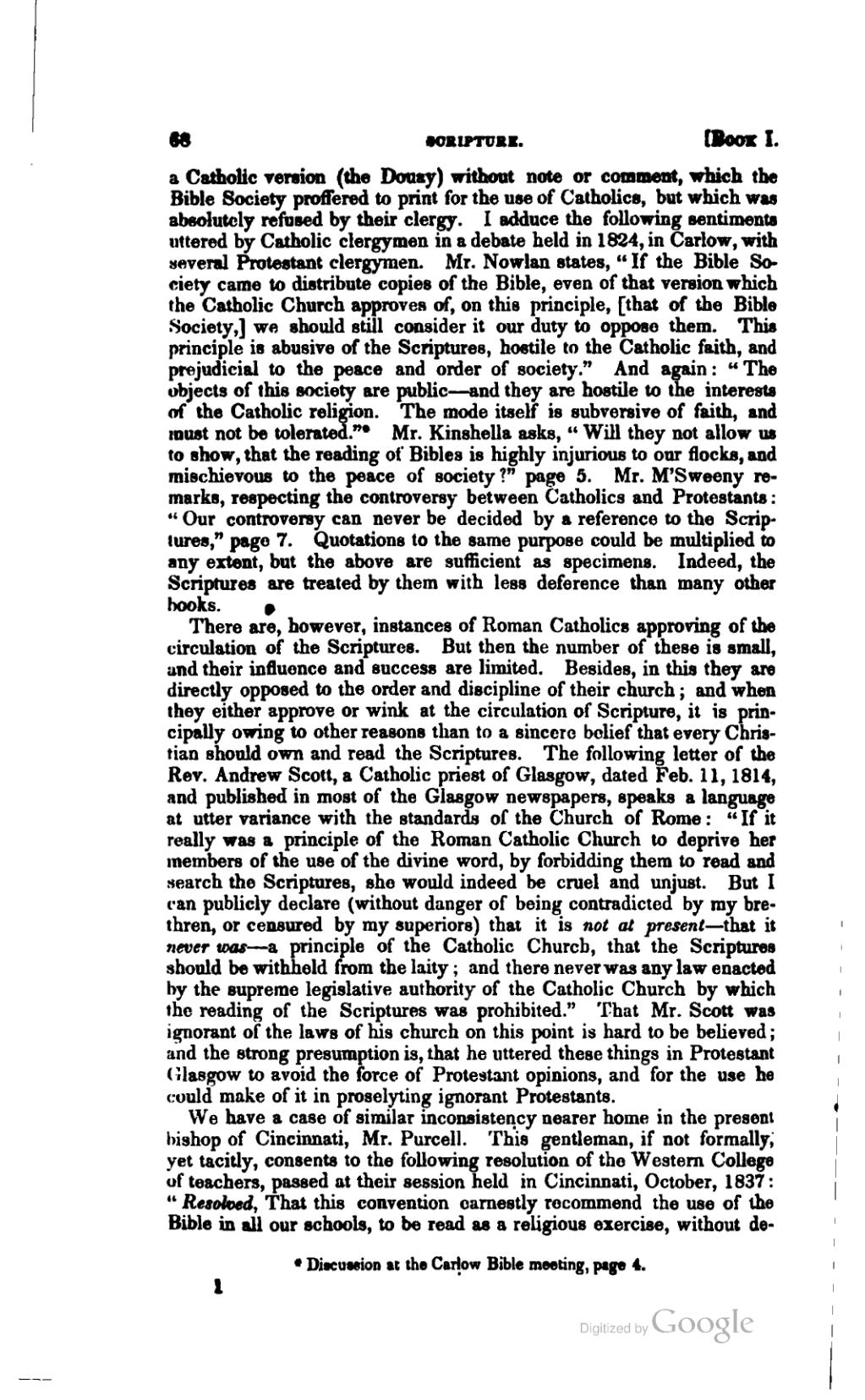a Catholic version (the Douay) ?t note or comment, whieh the Bible Society protiered to print for the use of Catholics, but which was absolutely refused by their cleFgjr. I adduce the following sentiments uttered by Catholic clergymen in a debate held in 1824, in Carlow, with several Protestant clergymen. Mr. Nowlan 8tates, "If the Bible So- eiety came to distribute copies of the Bible, even of that version which the Catholic Church approves of, on this principle, [that of the Bible Society,] we should still consider it our duty to oppose them. This principle is abusive of the Scriptures, hostile to the Catholic faith, and prejudicial to the peace and order of society." And again: "The ects of this society ore public--and they are hostile to the interests the Catholic religion. The mode itself is subversive of faith, and must not be tolerated."* Mr. Kinsheila asks, "Will they not allow us to show, that the reading of' Bibles is highly injurious to our flocks, sad mischievous to the peace of society ?" page 5. Mr. M'Sweeny re- morks, respecting the controversy between Catholics and Protestants: "Our controversy can never be decided by a reference to the 8cri D- tures," page 7. Quotations to the same purpose could be multiplied m any extent, but the above are sufficient as 8pecimeus. Indeed, the Scriptures are treated by them with less deference than many other hooks. � There are, however, instances of Roman Catholics approving of tim circulation of the Scriptures. But then the number of these is small, and their influence and success are limited. Besides, in this they ore directly opposed to the order and discipline of their church; and when they either approve or wink at the circulation of Scripture, it is prin- cipally owing to other reasons than to a sincere belief that every Chris- tian should own and read the Scriptures. The following letter of the Rev. Andrew Scott, a Catholic priest of Glasgow, dated Feb. 11, 1814, and published in most of the Glasgow newspapers, speaks a lsAgnsge at utter variance with the steAderda of the Church of Rome: "If it really was a principle of the Roman Catholic Church to deprive her members of the use of the divine word, by forbidding them to mad and search the Scriprares, she would indeed be cruel and unjust. But I can publicly declare (without danger of being contradicted by my bre- thren, or censured by my superiors) tha? it is not at present--that it ?eve?' wa?---a principle of the Catholic Church, that the Scriptures should be withheld from the laity; and there never was any law enacted by the supreme legislative authority' of the Catholic Church by which the reading of the Scriptures was prohibited." That Mr. Scot? was ignorant of the laws of his church on this point is hard to be believed; and the strong presumption is, that he uttered these things in Protestant (;!asgew to avoid the force of Protestant opinions, and for the use he could make of it in prosely?ing ignorant Protestants. We have a case of similar incousisten. c� nearer home in the present bishop of Cincinnati, Mr. Purcell. This gentleman, if not formally? yet tacitly, consents to the following resolution of the Western College of teachers, passed at their session held in Cincinnati, October, 1837: "Reaole?d, That this convention earnestly recommend the use of the Bible in all our schools, to be read as a religious exercise, without de- �Diecuoeion uu: the Carlow Bible meeting, page 4.
�
